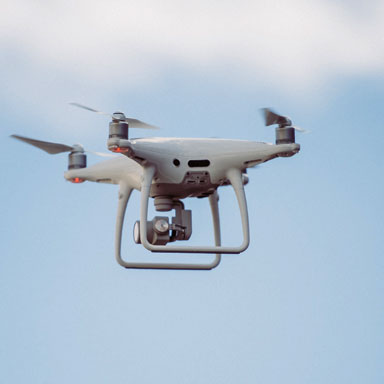Hit The Road
A family excursion film in which we never fully know where the film is going (and are regularly deceived regarding the reason why), “Hit the Road” might be set in the midst of the winding desert parkways and flawless emerald valleys of northwestern Iran, however PanahPanahi’s inexplicable presentation is filled by the developing doubt that its characters have removed a significant diversion from our human curl eventually en route. “Where are we?” the silver haired mother (PanteaPanahiha) asks into the camera after awakening from a fretful catnap inside the SUV wherein such a large amount this independent movie happens. “We’re dead,” squeaks the most youthful of her two children (Rayan Sarlak) from the secondary lounge, the six-year-old kid previously oozing probably the most anarchic film kid energy this side of “The Tin Drum.”
They aren’t dead – basically not in a real sense, regardless of whether the delightful homeless canine who’s tagged along is by all accounts barely hanging on – yet the further Panahi’s foursome drives from the lives they’ve abandoned in Tehran, the more it starts to appear as though they’ve left behind life itself. A purgatorial mist rolls in as they move towards the Turkish line, and with it comes a progression of semi-capable aides (one amusingly attempting to guide a motorbike from behind a sheepskin balaclava) who make an appearance to give the family unclear guidelines as though they were dumbfounded understudies for the ferryman on the stream Styx. In this independent movie an inestimable pall begins to shadow each scene, the characters becoming further and promote away from us with each remote chance until they’re (in a real sense) sucked into the gleaming pit of space.
We may never know why Khosro (Hassan Madjooni) and his better half so direly escaped their home to pirate 20-year-old Farid (Amin Simiar) out of the nation and away from the absolutist government their withdrawn first-conceived kid more likely than not outraged in some way, yet obviously this family is speeding down a single direction road. “We lost our home and we offered our vehicle for him to have the option to leave,” one parent cries to the next. “At any point do you consider the future?” And yet it’s the previous that is being relinquished to pay for it. Afterward, the young man will assess what is going on and inquire as to whether they’re cockroaches. “We are presently,” Khosro snorts accordingly, the greater part of his consideration zeroed in on the metal wire he’s utilizing to scratch at the toes standing out of his leg cast.
So it goes in a delightfully delicate parody that tears your heart in half with a featherlight contact – an independent movie that steers among misfortune and hangman’s tree humor with the master control of a trick driver, and intentionally disrupts each of its most pulverizing minutes with a dull joke to hold Khosro’s family back from running on empty. “Take off” is an anecdote about individuals who need to snicker to prevent themselves from crying, and Panahi focuses on that powerful with the unflinching devotion of somebody who realizes that his characters don’t have some other decision.
Taking into account that Panah Panahi is the child of the extraordinary producer Jafar Panahi (actually prohibited from independent movie making or leaving the nation), and that the late Abbas Kiarostami was more than a coach to him, his component introduction would appear to continue in the officially creative yet stylishly naturalistic practice of the Iranian film that raised him. Even more so on the grounds that show stoppers like “Taxi,” “A Taste of Cherry,” and, surprisingly, the Japan-shot “Like Someone in Love” depended on vehicles for their extraordinary capacity to explore the liminal highway among public and private spaces. But then, for every one of the recognizable fixings that Panahi blends in with the general mish-mash – the inconspicuous twists of self-reflexivity, his dad’s dry funny bone and wide political resistance, Kiarostami’s propensity for organizing basic emotional minutes in super wide remote chances – “Hit the Road” is crafted by a producer in full order of their own voice.
A portion of that is owed to Panahi’s shrewd visual style and millennial reference focuses (a running joke about “Batman Begins” supplements a more ruminative conversation of “2001: A Space Odyssey” and later a climactic “dubsmash,” assuming Instagram fathers are as yet utilizing that term), yet such a great deal his independent movie is an extraordinary person comes from the actual characters. The morose and weak Farid – whose bid to get away from Iran drives this circular story – is maybe the main individual from his family who doesn’t leave a permanent imprint.
Panahiha’s chance as a mother in emergency is on the other hand perky and tweaking; one representation shot of her disguised against the fogs of time is to the point of singing this whole independent movie into your memory. Madjoon’s curmudgeonly interpretation of Khosro is the sort of thing that seems like it could winding into sitcom cartoon without warning (“I tumbled down,” he moans when somebody asks how he hurt his leg. “From elegance”), yet his stumbling image of sadness comes from a profound well of fatherly despair. “You and your sibling are demolishing me,” he tells his “little fart” of a most youthful youngster, as though attempting to imagine that this entire film is definitely not a significant demonstration of adoration.
Perhaps he would rather not let Farid in on how much his family is forfeiting for him, or perhaps Khosro simply doesn’t have any desire to let it out to himself. There was adequate space for Panahi to focus all the more light onto that vulnerability in a 93-minute independent movie that possibly loses energy when it tips into unclearness, however what improvement could it have made eventually? Khosro’s decision is now made for him. It’s telling that our main clear knowledge into his psyche comes during a discourse he conveys level on his back and half off of his mind, his most youthful child lying level across his stomach and going all over with each exhausted breath.
That little pipsqueak is something else Panahi lifts from his father and the more extensive practice of Iranian independent movie: The hyper-charming, fantastically irritating child whose real essence is unstoppable to the point that he turns into a mirror fit for mirroring the most unfathomable realities of his general surroundings. In addition to the fact that Simiar delivers perhaps the most all around aligned kid execution you’ll at any point observer, his vile blamelessness (and related disarray over Farid’s looming “marriage”) additionally gives an ideal stabilizer to the excruciating substantialness that follows his family the whole way to the Turkish boundary. His screechy voice dulls the solemness out of each horrendous quietness, a propensity that takes care of multiple times over during a dramatic grouping that Panahi catches in a lifelike model like super wide shot; squint and you can see the kid’s little outline attached to a tree somewhere far off, thrashing against the destinies as his mom makes an arrangement with Satan on the most distant side of the edge.
In this independent movie it’s a second that solidifies how “Hit the Road” is at its best while at the same time working in two distinct cog wheels. The misery of misfortune is balanced by the crude energy of life, the particular subtleties of Farid’s break dovetail with the widespread grief of giving up a kid to the grown-up world, and the distressed tones of a glimmering piano become roadkill for – in the expressions of a young man staying his whole chest area out of a SUV’s sunroof as it speeds across the desert pads – “BLISS!!!” You’ll know how he feels, regardless of whether that feeling smashes down on you with a weight that Simiar’s personality will not need to bear until he’s more seasoned. “Whenever you see a cockroach,” his father puts it at a certain point, “recollect that his folks sent him out into the world with bunches of trust.”




